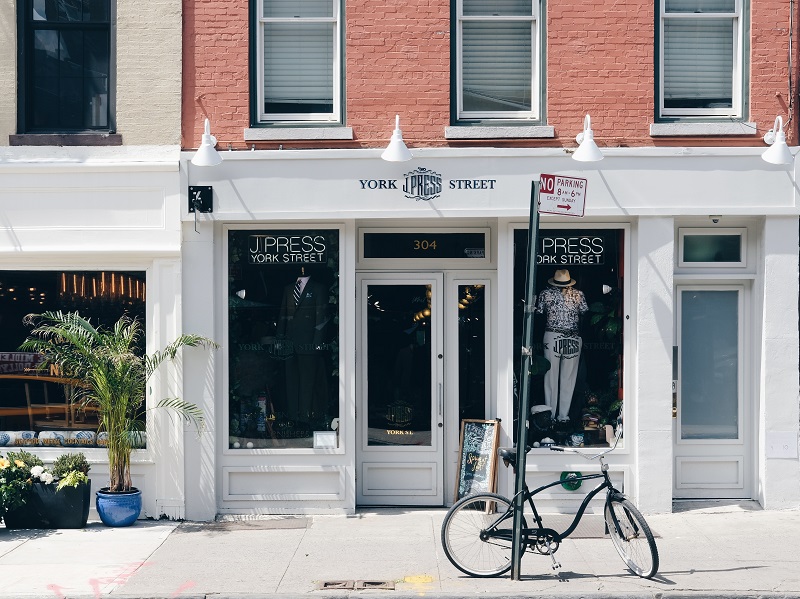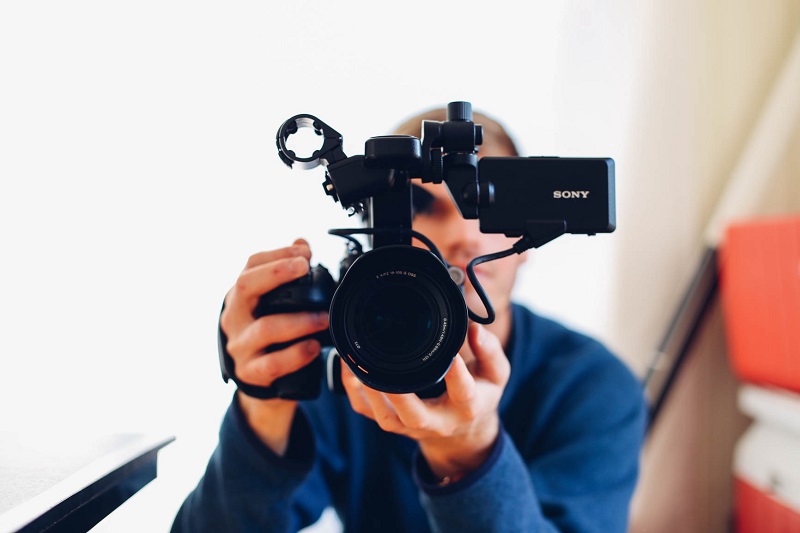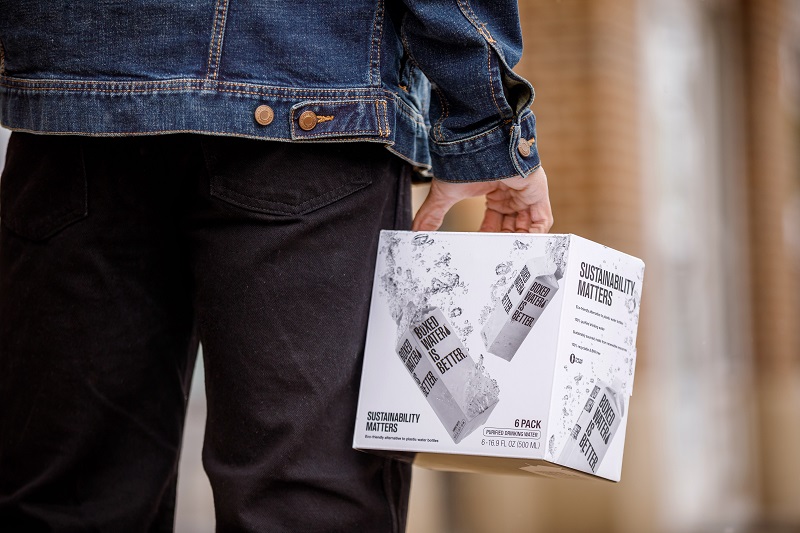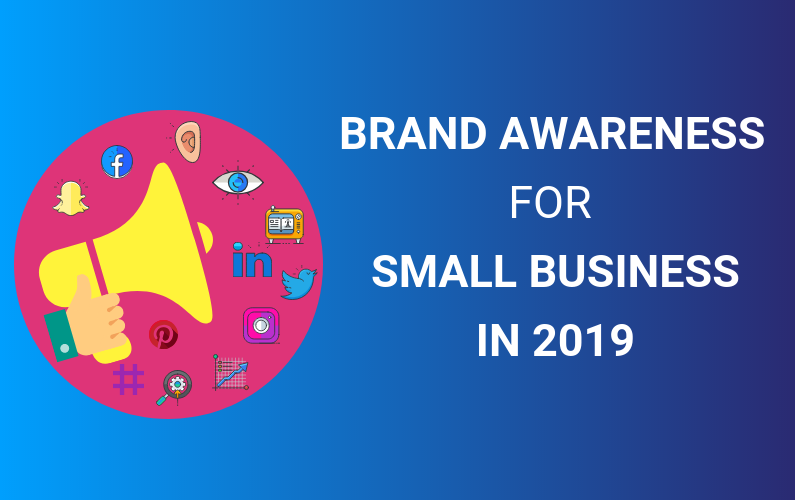One of the major success factors for any business is the strength of the brand on the market. While obscurity is considered the biggest problem for small businesses. Brand awareness helps to increase the market share, to establish and maintain customer loyalty, and to boost sales volumes. The market is dynamic and constantly changing; hence, small businesses have to come up with innovative ideas to increase brand awareness.
Running a small business requires a lot of time and effort. Adding brand awareness may not be a top priority for a small business owner, but once you get a comprehensive understanding of brand awareness benefits, it should become one of your top priorities.
Marketing content must be engaging to capture and maintain the attention of potential customers. Effective brand awareness is also associated with a stronger market position. This means that the consumers can recognize unique selling points from a particular brand that makes it distinct from the other brands in the market.
What is Brand Awareness?

Brand awareness is defined as the recognition of your product or company by consumers. It may give you a competitive advantage in the industry. When purchasing, it is likely that you would choose the product you are familiar with. In a study on brand awareness, it was proven that indeed brand awareness is vital for customers in making new purchasing decisions.
The benefits of building brand awareness are ease of acquiring new customers, competitive edge, increased word of mouth marketing, improved customer loyalty and trust, ease of introducing new products to the market and increased sales.
When a company does not invest in brand awareness, customers start to forget the brand. It is important to note that the need for brand awareness is crucial for big or small companies. There are cost-effective brand awareness campaigns available that will not require a big budget.
Effective Brand Awareness Campaigns
1. Social Media

Social media can be used to increase sales volumes, create brand loyalty, and brand awareness. There are numerous social media platforms are available for small businesses. However, the most effective social media marketing tools are Instagram, LinkedIn, Facebook, Twitter, and YouTube. These platforms provide small businesses with several options: they can create pages, create and share content, or partner with social media influencers. For small businesses, social media offers a platform where they initiate business transactions, run brand awareness campaigns, and close sales.
The three leading social media platforms have more than one billion subscribers each. What this means for small businesses is that it has a pool of potential customers to work with. Social media makes it possible to get marketing messages to potential customers easily and at affordable costs. Effectively, it makes brand awareness campaign inexpensive for small businesses. Despite these platforms being cheaper and easier to use, they are characterized by intense competition. Hence, small businesses must come up with creative and innovative brand awareness content that stands out.
Social media offers small businesses well-functioning platforms to sell products or services. The only task left for them is to sell the right message to the right group of people. This begins by defining the right audience before rolling out a brand awareness campaign. This is followed by identifying the right social media platform. The small business owners should choose the social media platform that is frequently used by the target customers. For a small business, it is easy to determine the right platform because it has little stake in the market. Even so, it can only benefit from successful brand awareness if the right group is reached with the right message.
Branded hashtag is the beginning point for the small business. Start a brand awareness campaign by creating a captivating hashtag that invites social media users to view the product. Secondly, leverage on the demographic social media tools. These tools are useful in defining the target audience, location, demographics, and time they actively engage in social media. By doing this, the small business is able to come up with accurate brand awareness content as well as the optimum time for running the message for the customers. Brand hashtag also helps to find and repost user-generated brand awareness content. The user-generated contents further help to validate your claim. When the users give a positive review to the product, they influence others to like and trust the brand.
Experiment with different content to find out what your targeted audience enjoys the most. The content that gets the most engagement: shares, likes and comments is your winning content and should be a part of overall marketing strategy.
2. Word of Mouth Marketing

Customer testimonials are powerful brand awareness tools, especially for small businesses. Customer testimonials are mostly provided for in the social media pages, website page, and YouTube contents. It is the responsibility of a small business owner to influence the nature of the customer testimonials through positive and powerful brand awareness content. Customer testimonials help to increase the trust of the brand, they influence others to buy the product, they are free and also reinforce customer loyalty. Customer testimonials also provide useful feedback for small businesses to determine the attributes of the product that require improvement.
No one talks about a product that they barely have known. Brand awareness content should include product selling points. These selling benefits will guide the nature of satisfaction that the customers will attain when consuming the product. First, the campaign ought to highlight the problem the customers are facing. This would be followed by information about how the product solves this problem. This message needs to be clear and concise so that the customers can measure it against the outcome they obtain from using the product. This approach results in a powerful strategy for getting consumers to talk about the product. Subsequently, it enhances customer loyalty and brand awareness.
3. Influencer Marketing

Influencers are people who have developed admirable personalities in the market. They have huge followings and the followers trust them. Every product has a claim, which potential customers would not ascertain until they use it. For a small business to get the potential customers to try a product, it must get the influencers to assure the latter that your product claims are valid. Subsequently, they will be motivated to try the product. Moreover, some of them will be quick to share out this information because of their loyalty to the influencers. By doing this, they increase the level of brand awareness.
Other than getting them to talk about your product, a small business should also ask the influencers to display the brand. Human beings have a natural tendency to say yes to something that they like. Since the influencers have people who admire and trust them, they are more likely to buy these products displayed by the latter. For example, many people across the world use Nike shoes because they like Lionel Messi, the leading Nike brand ambassador.
Social media has become a powerful marketing tool today that a small business can leverage to help create brand awareness. As the level of internet penetration grows, social media spreads its tentacles across the world. Social media marketing would help many businesses to increase their brand awareness. This is because of the emergence of social media influencers. These are social media accounts with many followers, some as high as more than one million followers. These influencers use their accounts to help businesses create brand awareness. For successful brand marketing campaigns, small business ought to consider using social media influencers who have tremendous experience in helping brands to market their products. Try using tools like Buzzstream to help you find influencers for your niche.
4. Video Marketing

5. Engaging Imagery & Content Marketing
Besides making video content, photos and other forms of imagery is also recommended. Choose imagery, which is describing the emotions and outcomes of your product that encourages a brand’s awareness and build familiarity. Today, there are a lot of options out there to promote high-quality graphics and imagery for your company. You don’t have to be a graphic designer to do this. You can create some of the most beautiful graphics solutions with sites like Canva or Venngage.
Use industry data, reports, and other trending content to help you to create valuable content. It is an effective way of promoting authority, credibility and brand awareness. You can use online tools like Google Trends to determine the most popular online content.
6. Search Engine Optimization (SEO)
Brand awareness is about getting the potential consumers to interact with the information about the product as many times in a day as possible. The goal of any business should be to make a product a household name. When many people suddenly begin talking about a product, they are asking their neighbors to trust their choice. Unknowingly, some of them neighbors will end up buying the products simply because they heard others talking about it. In order to attain a successful search engine optimization (SEO) for a brand awareness campaign, the solution lies with the content. Small business owners should work hard on creating content related to their product or service. This is because, most certainly, the brand is little known in the market.
SEO is useful for websites and blogs. To leverage on SEO, the small business must know what people are looking for. You have several tools at your disposal, which can be used to determine the right keywords. This would be followed by ranking the website of the small businesses according to the result of the keywords search. The same keywords would also be used in brand awareness blogs. For the website, it is important to optimize its functionality, such as the loading speed. High loading speed is an important SEO factor and will increase the chances of many potential clients accessing the website when the keywords are used in the search engine.
7. Create Beneficial Partnerships with Related Businesses

Partnering with local businesses is as effective in creating brand awareness as using influencers. Small business should create a beneficial partnership with other smaller businesses with complementing products. For instance, a seller of automobile spare parts would derive great benefit in working together with local mechanics. Similarly, it is in the best interest of a local bakery to collaborate with a small coffee house and florist with a wedding planner. The later would create referrals for the former. You should develop a strategy for approaching the local businesses and coming up with a mutually agreeable proposition.
Sometimes, local connection is what a small business needs to create an effective brand awareness campaign. Since these two businesses operate in the same market, they share customers. Secondly, business-to-business referrals are done through the word of mouth. By pursuing this strategy, a small business is able to execute a brand awareness program at little or no cost at all. Moreover, the strategy would be highly successful because it targets the right clients with the right message. Mostly, these are people with immediate needs for products and services. Other than creating brand awareness, it also provides a useful avenue for increasing sales.
8. Online and Traditional Advertising
Social media platforms and search engines have become more aggressive in controlling the marketing space. These platforms boast of their high subscriptions which are rising every minute. The examples are Google’s AdSence & PPC and Facebook. This tool provides paid aid services for businesses that want to leverage the search engine’s customer base. Other than providing an expanded reach, this tool also guides small businesses on the best places to place and optimize ads. This tool uses algorithm learning to determine the sites that are best for specific ads. Therefore, it helps guide the brand awareness campaign by ensuring that it is focused and specific.
A small business can utilize help from a marketing agency to determine the right media for running brand awareness, the most beneficial tools, and the right message. Other than Google’s AdSense and PPC, Facebook ads also offer effective paid ad tool for small businesses. Similar to AdSense and PPC, Facebook adverting campaign uses machine learning to determine the right audience for the brand awareness message. Moreover, it allows to create customer profile and demographics for the business. Subsequently, you need to create content that speaks directly to the target audience.
Traditional advertising includes the placement of ads in newsletters, TV, radio, or billboards.
9. Branded Packaging

Nothing talks about a brand like its packaging. Hence, branded packaging is one of the surest ways of creating and maintaining brand awareness. Branded packaging creates a visual representation of the product on the mind of the consumers. The role of the marketing agency is to help come up with attractive branded packages for the products. The designs and graphics used in the packaging should tell the brand story. Small businesses do not have the immense marketing power. Even so, they must tell their story for them to penetrate the market and to maintain the small market share. Therefore, the branded packaging, as guided by the marketing agency, ought to be enough to remind the consumers about the product’s selling points.
Product experience does not begin at the first use. A consumer must buy the product a third or fourth time, before he or she can develop the liking for the same. Therefore, brand awareness, is created by using branded packaging that keeps the name and image of the product on the mind of the customers. The choice of the graphics and the design, by the marketing agency, helps to create an emotional connection between the consumer and the product. The secret to successful brand awareness is to create a connection that would last long after the client had used the product. By doing this, the marketing agency will help the business to develop customer loyalty and brand awareness.
10. Email Marketing
Email marketing is considered as the most effective marketing channel. Come up with a creative strategy to collect prospect’s emails and then create an email drip campaign. Consider training your current and prospective customers to open your emails. To start, write a mini-course and send a quick lesson each day for 3-5 days. This is could be set up in email marketing software such as MailChimp.
Consistency is the key to building brand awareness. You need to know how many touch points you need to make before a customer decides to purchase the product.
11. Direct Mail
12. Public Relations
13. Personal Marketing

Conclusion
Brand awareness is very important for any company. While each brand uses different tactics, one thing stays the same, companies need to invest in brand awareness campaigns. You won’t need to have a big budget to see results in brand awareness campaigns. Using creativity and right strategies, can help you to succeed and reach your customers with the same way as big brands do.


Recent Comments